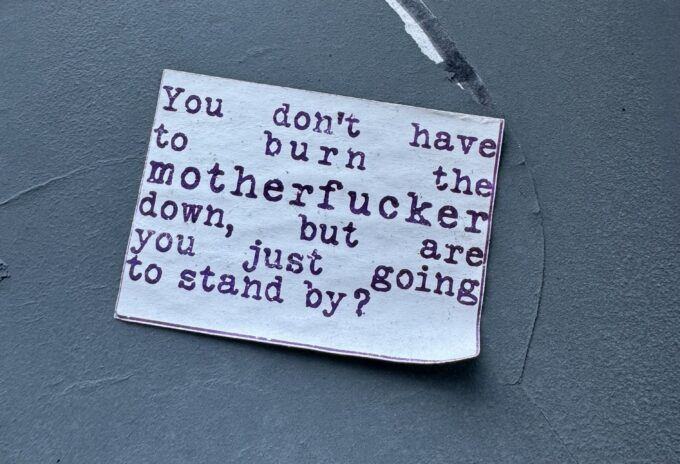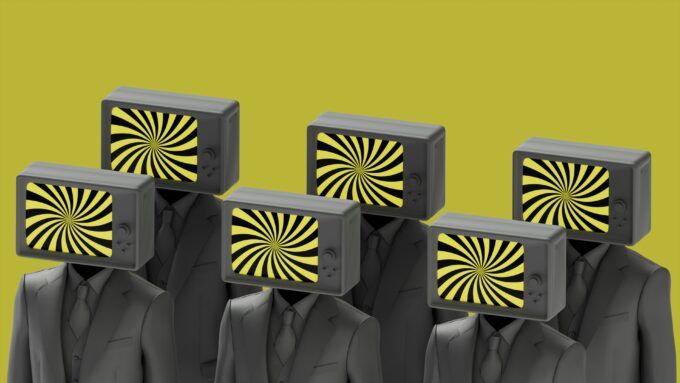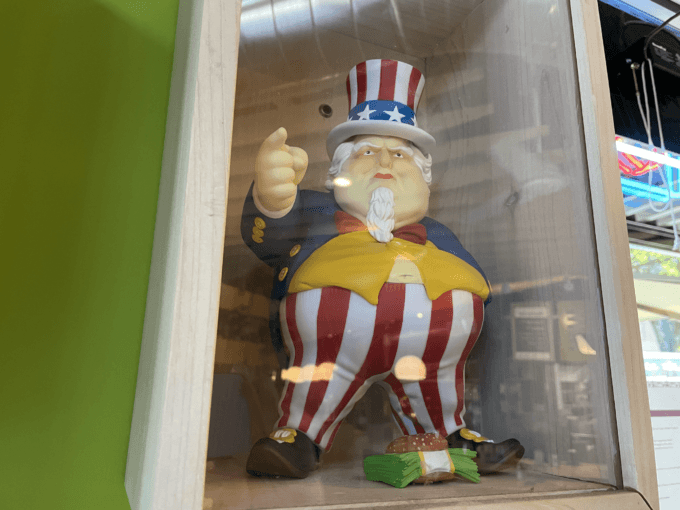
rough beast
Published on http://www.counterpunch.org/
And what rough beast, its hour come round at last,
Slouches towards Bethlehem to be born?— William Butler Yeats, 1920
American culture, by which I mean what Raymond Williams meant: “a whole way of life,” has been preparing for and heading toward Donald Trump for a long time. Some of what we take pride in such as our inherited Frontier spirit and love for individual freedom as implicated, but less obviously and venally so, as our love of fierce entrepreneurial competition and profit as the highest good.
What looks like an unhinged collapse into talk of “post-truth” and “alternative facts” is actually no more than an open appearance of long existing latent or recessive conditions in the American mass psyche. An early “anxiety of influence” in regard to European culture detoured American culture toward the anti-intellectual as a way of avoiding being apprenticed to a culture from which it had declared itself free. The five values for a democratic state in De Toqueville’s view, liberty, egalitarianism, individualism, populism and laissez faire, decidedly leaned away from any authority, especially that of tradition, monarchy and aristocracy, and that of the state.
Capitalism’s affinity to individualism lies in its non-affinity, its opposition, to any solidarity with the power to oppose a “free play of the market.” Egalitarianism is, of course, an archaic criterion simply because a divide in which 1% has the combined wealth of 95% is indefensible if that criterion for democracy was yet in play.
Capitalism’s affinity to populism lies in its certainty that it can hype and spin those inclined to be “self-empowered,” those asserting their own individual opinions over any authority. Because a scant number of opinions are original but rather implanted by the surrounding culture, especially one that finds a profit in shaping such opinions and has innumerable delivery “platforms” to accomplish this, the solidarity of consensual or empirical/rational authority drowns in a sea of disrepute, dismissal and defamation. Liberty must be confused with the existential notion of freedom because gross economic inequities cannot extend an equal share of political liberty to all. The rich hire a Dream Team and the poor get shot in the streets.
Everything is thus primed for Kelly Anne Conway’s “[O]ur press secretary, gave alternative facts to that.”
Our preference, too, for populist personalities rather than determining cultural forces surrounding each of us has us now focused on President Trump’s erratic personality, as if it all suddenly popped out of a clamshell in an Aphrodite-like entrance into American culture. But if we step away from “faces” which can never reveal what minds shape as ideas and books examine, or 140 character tweets that ignore the wisdom of “The Devil is in the details,” we can see that both the American electorate and its majority representation by two parties, Democrat and Republican, and Donald Trump are imbricated, layered like roofing slabs, one overlapping the other.
This American electorate, severely divided, is not divided into good or bad, brainwashed and perceptive but more reliably as progressively unmindful of each other. All the forces leading to Donald Trump have led to an awareness that he shares with his fans, they, awakened to the reality that some arrangement of the “administrative” order has scheduled them for a slow, woeful extinction, and he, Trump, awakened, like a proper con man in search of his mark, that he can make a very powerful pitch to these people.
He can, in short, bring them into an adulating aura of his own personality, one, it seems, in steady need of such adulation. But his skills and cleverness and his needs, on the edge of pathology or not, are not his own. This is something difficult for an egoist to accept but Trumps are an American commodity. We breed them the way we grow bacterial cultures in a Petri dish.
True, Trump may be over the top, more bizarre than the norm, but bizarre is what American culture celebrates, it fits a diet of extremes, of a collapsed attentiveness that can only be grabbed by surprising or reckless jolts with which we are assailed by the rapid fire of our hand held devices, like six guns.
The dull working class hero of Middle America is hopelessly analog, replaced by the startling lives of those who exceed in every way the slow linearity of the norm. On the way to Trump, American culture has feasted upon for brief moments those willing to flame briefly like a Roman candle, some innocuous clowns like Glenn Beck and Sarah Palin, and some using murder and mayhem to reach the spotlight.
It appears that the American mass psyche is driven to extremes in a rush to escape a life of anonymity and at the same time is in an addictive need to top each stimulation with an even greater one. We can see that in Donald Trump’s expansion of himself to a Trump brand that can never be broadcast enough. We can see that as well as in his rush, mindless of any consequential order, to shock anew and disrupt even language itself. Much of this pitch is magnetically attracting to a culture whose economic order is a con man’s hype foraging among the hyped and duped.
The promotion by one political party of a rapacious economic system, of hype and hyped, and the silent complicity of the other party, inevitably leading to the abandonment of a non-investing and negative wealth class has also now in the 2016 presidential election led to the revolt of the hyped and duped. This is a revolt not blind to its own economic predicament, unlike the Tea Party which we can see clearly now was both one part Ayn Rand, one part alt-right, and all “useful idiots” in obscuring real “conditions on the ground” that the Occupy Wall Street movement, for example, had exposed, but left un-interpreted.
The abandoned class Trump has roused to action remains, however, blind in its appraisal of the causes of their plight and blind in its faith in Trump, a man concerned only with playing this rapacious economic system to his own benefit who will hopefully make them “great again.” This is the faith of the hyped.
Likewise, the fact that Trump is a “rough beast” of our own cultural creation and that the angry, anxieties and bitterness he has tapped into are real does not make him the Savior of the Republic, as he advertises himself. He remains the greatest danger to that Republic since a drunken Nixon in his last days still occupied the presidency.
At the same time, we cannot be misled into assuming that Trump’s end somehow resolves or ends the plight of those who turned in desperation to him. Trump’s regime is indeed a rough beast slouching toward our Republic to transform it into something that seems to follow closely the rule book of Mein Kampf. But a globalized, financialized led capitalism regime, which has led to 1% having more private wealth than the bottom 95% combined, hourly compensation rising 9 percent while productivity increased 74 percent, a gentrified meritocracy that inhabits the top 20% serving that top 1%, and moves axiomatically toward the environmental collapse of the planet will not vanish when Trump vanishes.
U.S. history abounds with examples of those “mad, bad and dangerous to know” coming on a scene in real desperate need of recuperation but going down in the flames of their own mania, ambition and greed. In less than two months in office, President Trump has shown us the paranoia of a Nixon, a self-inflated ego shared by every self-declared Napoleon in every asylum, and a childish volatility of temperament with which others must comply, though such compliance inevitably leads to clashes with a non-pathological observance, accounts of a true state of affairs.
Thus, what is slouching toward us is this regime of compliance with a President (and it is astounding how quickly this regime of Eichmanns is forming) who can in a very short time create the conditions by which, to quote Yeats’s “Second Coming” once again:
Things fall apart; the centre cannot hold;
Mere anarchy is loosed upon the world,













